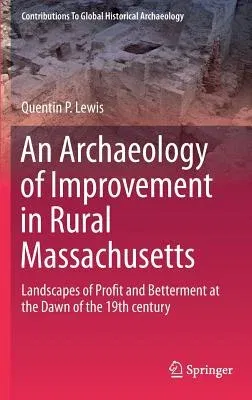Quentin Lewis
(Author)An Archaeology of Improvement in Rural Massachusetts: Landscapes of Profit and Betterment at the Dawn of the 19th Century (2016)Hardcover - 2016, 2 December 2015

Qty
1
Turbo
Ships in 2 - 3 days
In Stock
Free Delivery
Cash on Delivery
15 Days
Free Returns
Secure Checkout

Part of Series
Contributions to Global Historical Archaeology
Print Length
236 pages
Language
English
Publisher
Springer
Date Published
2 Dec 2015
ISBN-10
3319221043
ISBN-13
9783319221045
Description
Product Details
Author:
Book Edition:
2016
Book Format:
Hardcover
Country of Origin:
NL
Date Published:
2 December 2015
Dimensions:
23.39 x
15.6 x
1.6 cm
ISBN-10:
3319221043
ISBN-13:
9783319221045
Language:
English
Location:
Cham
Pages:
236
Publisher:
Weight:
530.7 gm